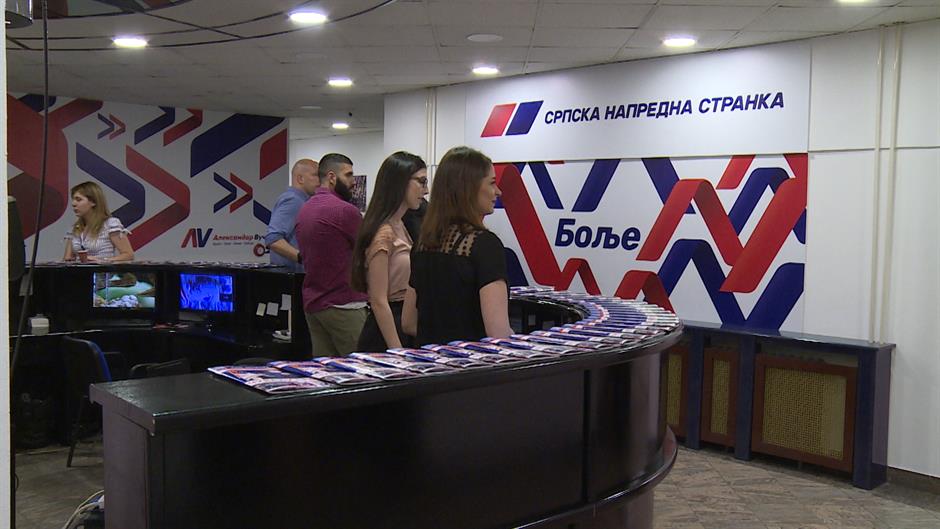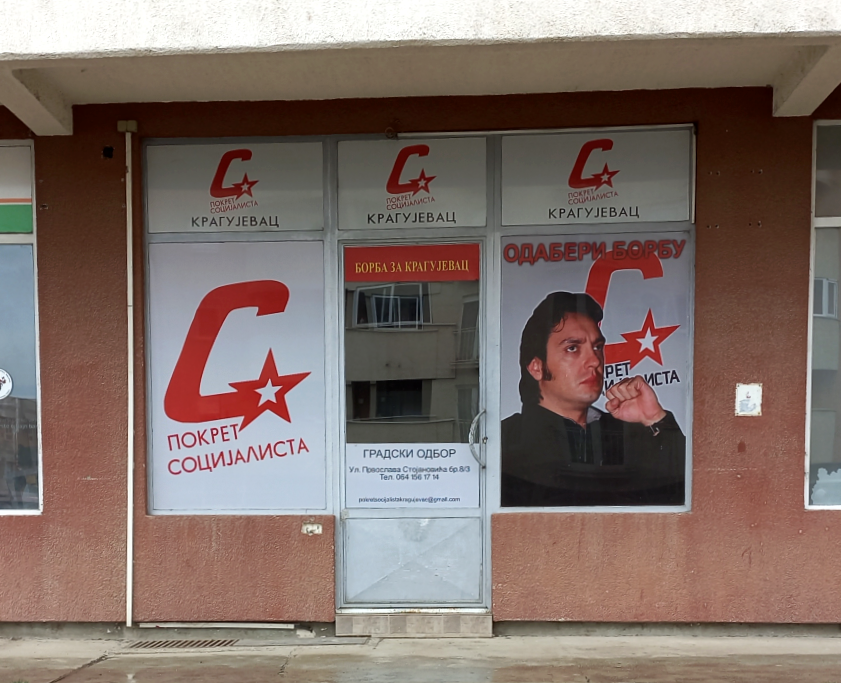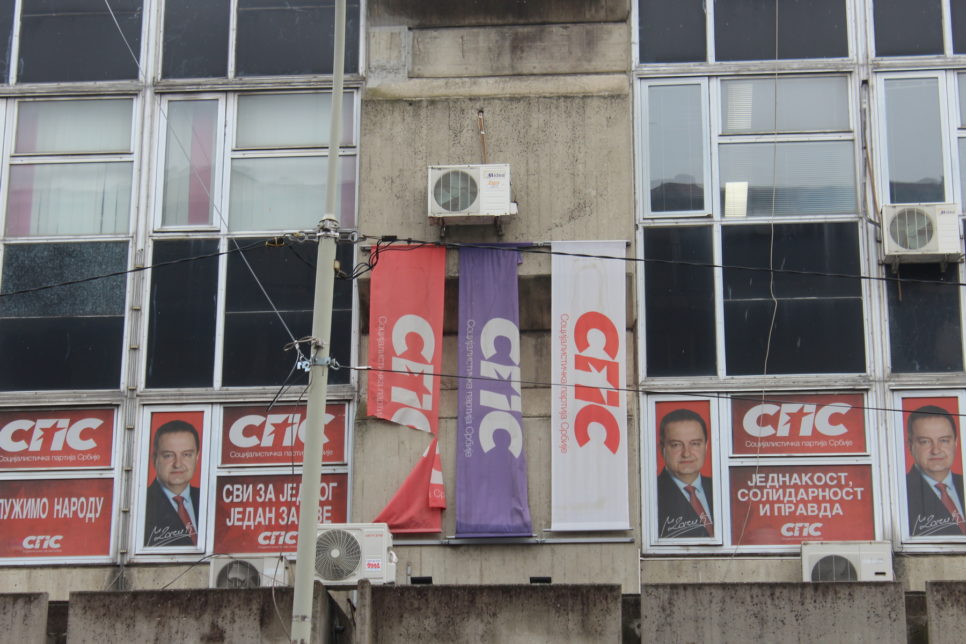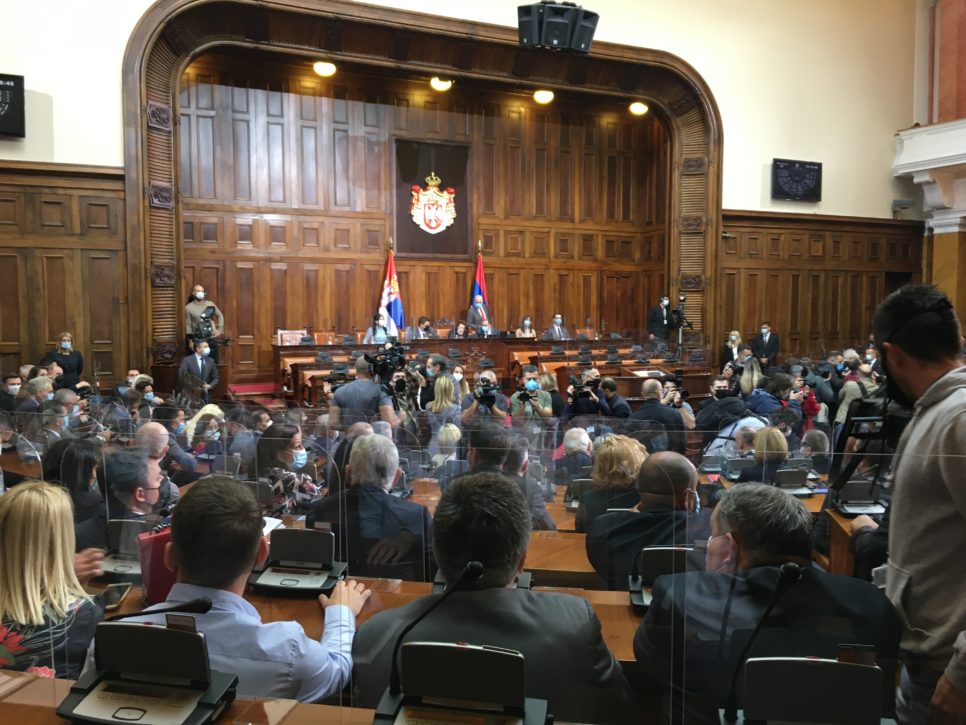“The only way not to vote for Vučić is not to vote at all.” That was the message of the pro-boycott TV ads that could be seen on N1 and Nova S televisions ahead of the general election in June.
Soon after the Regulatory Authority for Electronic Media (REM) banned them from airing, as they was contrary to the law, spots with a different slogan, “The only way not to vote for the regime is not to vote at all” appeared on the aforementioned cable channels. REM again ordered that the televisions stop airing these ads, as it was unknown who the advertiser was and whether they had a right to political advertising.
According to the regulatory body’s final report on the election, on June 16 it asked the owners of N1 and Nova S for the advertising declarations for these spots. They were not delivered but in spite of that REM categorized them in its report as ads of the Alliance for Serbia (SZS), stating that it had counted 222 instances of airing in total on N1 and 180 in total on Nova S.
However, according to experts this campaign will remain beyond the reach of the Anti-Corruption Agency because it was not the Alliance for Serbia or any of the pro-boycott political parties who paid the televisions to air the ads, but rather a company called JSP Audio and Video Production, the Center for Investigative Journalism of Serbia (CINS) has learned. This production company was founded in April 2018 and its owner and director is journalist Jovana Polić.
What is JSP Production?
JSP Production attracted public attention in February 2020 when its two-part documentary The Ruler, on the biography of Serbian President Aleksandar Vučić, directed by Jovana Polić, edited by Sanja Lončar and created by journalist Slaviša Lekić, aired on N1. Vučić commented on the film at the time as “four hours of unadulterated hate,” which was why Lekić announced he would file a lawsuit against the president. JSP said that in addition to Vučić it would also sue Informer Editor-in-Chief Dragan J. Vučićević because the tabloid had published the production company’s business data and because it had said that the film had been financed by the European Union and Dragan Šolak, one of the heads of United Group, which N1 and Nova S are a part of.
Polić told CINS that the plan was for these ads to be aired for six days, 672 times in total. In her words, the production company made the spots and paid for their airing:
“Because we took part in the boycott campaign. It was not for any party.”
These ads, besides the messages they send, partially visually resemble the official boycott campaign of the Alliance for Serbia (SZS). At the end of the spots the election date is crossed out with a red X, followed by the word “Boycott” written in Cyrillic script, with a red full stop, similar to the Alliance campaign.

Nevertheless, given that the production company claims that no political party paid for the ads but rather that it did so itself, the whole case remains beyond the reach of the Anti-Corruption Agency, Vladimir Tupanjac, a lawyer and former employee at the Agency’s Sector for Oversight of Financing Political Activities, told CINS.
“Third party” commissions campaign for Progressives in 2016, then cheats Happy TV
As the portal Cenzolovka reported earlier, at least 249 spots of the Serbian Progressive Party (SNS) aired during the 2016 election campaign on national free-to-air Happy TV, were left unpaid for at the time. Happy TV claimed that an agency called MP Media had contracted the advertising, purporting to work on behalf of the Progressive party. The Progressives, however, denied having commissioned those ads and so the cost of the campaign of roughly 62 million dinars was not paid. The Third Basic Public Prosecutor’s Office checked the case on suspicion of fraud, while the Anti-Corruption Agency determined the existence of suspicion that a “third party” in no way affiliated with the Serbian Progressive Party had committed a criminal offense. According to Cenzolovka, by mid-2017 neither the police nor the prosecutor’s office had managed to discover who had commissioned these spots.
The Agency is authorized to initiate and lead a procedure to determine whether the Law on Financing Political Activities has been violated. However, as he puts it, it can only oversee political entities and the legal entities and natural persons who provide services to the said entities, as well as political entities’ donors. If there is no legal, i.e. actual connection between the person who paid for a service and a political entity, he says, that is considered freedom of expression. The law does not recognize this, known in theory as financing by a third party:
“A natural person or a legal entity can in a completely unrelated way, at their own expense, lead a complete campaign for a political entity and that cannot be subject to oversight in any way,” Tupanjac explains.
He adds that the same problem occurs in the United States of America, too, where legal entities can lead entire campaigns for political entities without being subject to restrictions.
Alliance for Serbia and a Donation
Even though the boycott ads were taken off the TV channels soon after they debuted, they appeared on YouTube, specifically on the official channel of the Party of Freedom and Justice (SSP), a member of the Alliance for Serbia (SZS).
Polić told CINS that her company permitted all who wanted to put the spots on their communication channels to do so. However, aside from the party led by Dragan Đilas, no others contacted them for that purpose.
“They (Party of Freedom and Justice, journalist’s note) were in a boycott campaign and we had nothing against their putting [the ads on their channel].”
In a reply to CINS’ questions, Đilas denied that the spots had anything to do with his party.
“We put them on our YouTube after their airing on televisions was prohibited. And there are no Party of Freedom or Justice labels on them,” Đilas said in an SMS text message.
Although Dragan Đilas says that nobody donated anything to his party because what is donated would then have to become the party’s property, the Agency said in a reply to CINS that “if a legal entity or a natural person makes and pays for the airing of an advertising message (spot) on television and then gives that same advertising message to a political party free of charge, and that party posts it on its official YouTube channel, the legal entity or natural person has through that action given a gift, i.e. (non-financial) contribution to the political party.”
Judging by a memo from the Agency, the Party of Freedom and Justice should report this contribution in the annual financial statement for 2020, which is to be submitted by mid-April 2021.
Price Multiply Lower Outside of Political Bloc
Marija Kovljenić, director of CAS Media, an agency within United Group which deals with the sale of advertising space on N1 and Nova S televisions, told CINS that a total of 407 advertising messages had aired during this campaign, five more than what was detected by REM.
The sum paid for their airing was 1.2 million dinars, according to JSP Production owner Jovana Polić.
CINS compared the campaign expenses and found that price to be much lower than the one paid by some political parties that had advertised themselves on N1 ahead of the election.
For example, according to data provided by REM and the Anti-Corruption Agency, the Serbian Progressive Party (SNS) paid around 3.9 million dinars for 28 ads on N1, while the United Democratic Serbia (UDS) coalition paid 3.3 million for 20 spots.
REM calculated in its monitoring that, proportionately with the number of ads, the spots calling for an election boycott were in the top spot in terms of duration as well. The pro-boycott ads on these two televisions combined lasted just over three hours, whereas the airing of Serbian Progressive Party campaign ads on N1 totaled about 21 minutes, and the ads of United Democratic Serbia just over 18 minutes.
Another participant in the election advertised their political option on N1 and Nova S. Aleksandar Šapić’s Serbian Patriotic Alliance (SPAS) paid 1.7 million dinars for 15 ads, the duration of which added up to just over eight minutes.
Even though the pro-boycott ads had a political message and were broadcast before the election, the reason for the lower price, according to Kovljenić, is the fact that they were not a part of political marketing.
The same elements in Boško Obradović’s campaign
A spot was posted on June 20 on the YouTube channel of Dveri, a party which was a member of the Alliance for Serbia (SZS) until the end of summer. Dveri leader Boško Obradović says that the opposition spot is from the boycott campaign but that he does not know who made it. Elements from the JSP Production ad appear at the very end of the spot, however Obradović was unable to tell us whether it was the same boycott campaign.
„CAS Media aired the JSP Production’s advertising campaign during regular commercial breaks according to REM’s interpretation,” reads the agency’s reply to CINS.
We did not manage to get CAS Media to explain what interpretation by REM they were referring to, and how the airing was contracted before that interpretation was released.
Jovana Polić says they did not ask for a discount and that they accepted the offer they had received from the agency.
She refused to send the CINS journalist a copy of the contract made with CAS Media, while representatives of that agency told us that they could not discuss contract values without the consent of the contracting parties.
The text was created within the project “PrEUgovor for Rule of Law and EU integration of Serbia” supported by Balkan Trust for Democracy, a project of the German Marshall Fund of the United States and the Royal Norwegian Embassy in Belgrade. Opinions expressed in this publication do not necessarily represent those of the above mentioned donors, or its partners.






What do you think